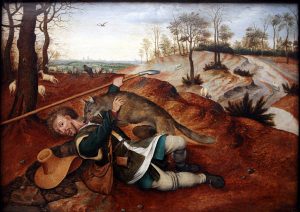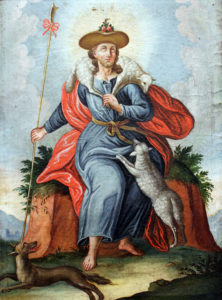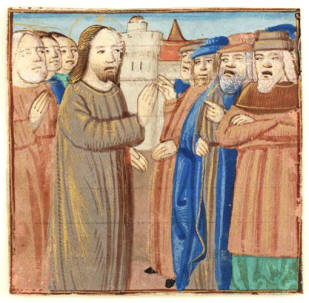Thoughts on Sunday’s Lessons for April 21, 2024 (Easter 4B)
First Reading: Acts 4:5-12
The Fourth Sunday after Easter is also called “Good Shepherd Sunday” for its focus on God’s protective love. In the first reading from The Acts of the Apostles, we see Peter, brave and bold with the power of the Holy Spirit. He and John have been arrested by the Temple authorities for causing a stir by healing a paralyzed man, then preaching that the resurrected Jesus is the Messiah. Unafraid, Peter tells them that they are the ones who crucified Jesus, whom God then raised from the dead. Quoting the verses from Psalm 118 that we also read recently on Palm Sunday and Easter, Peter declares that Jesus – the stone they had rejected – has become the cornerstone of salvation.
Psalm: Psalm 23
Many Christians know this beautiful Psalm so well – perhaps in the cadences of King James – that we can recite it from memory. But sometimes familiarity robs us of the beauty of rediscovering the details. Try reading it now with fresh eyes and mind. Take it slowly, one verse at a time. Breathe deeply and visualize yourself and your loved ones in each line: walking with God through the green pastures, past the still waters and through the dark valley, then sitting down at God’s table for an unforgettable banquet. God loves us all, always. What could be more comforting than that?
Second Reading: 1 John 3:16-24
Jesus loved us so much that he laid down his life for us. But wait! “And we ought to lay down our lives for one another”? That following phrase makes things a little more complicated! Just as God loves us, we are to love each other, to help our brothers and sisters in need, not just in what we say but in what we do. We are to be not only sheep, but shepherds, too. Filled with God’s love, we are called to be bold, just as Peter was bold in the first reading. We seek to be fired by the Holy Spirit, just as Peter was inspired.
Gospel: John 10:11-18
If we read this passage from John’s Gospel in its full context, this seemingly simple narrative resonates with the day’s reading from the Acts of the Apostles. In Acts, the authorities confronted Peter and John over their healing and preaching. Here, the Pharisees are angry and alarmed because Jesus healed a blind man on the Sabbath, prompting people to speak of him as the Messiah. When Jesus responds by declaring himself the Good Shepherd; he is pushing back hard: If the people are harmless sheep, he implies that it is the Pharisees who are the vicious wolves that prey upon them. Jesus declares that he will lay down his life for the sheep and that he will live again.



